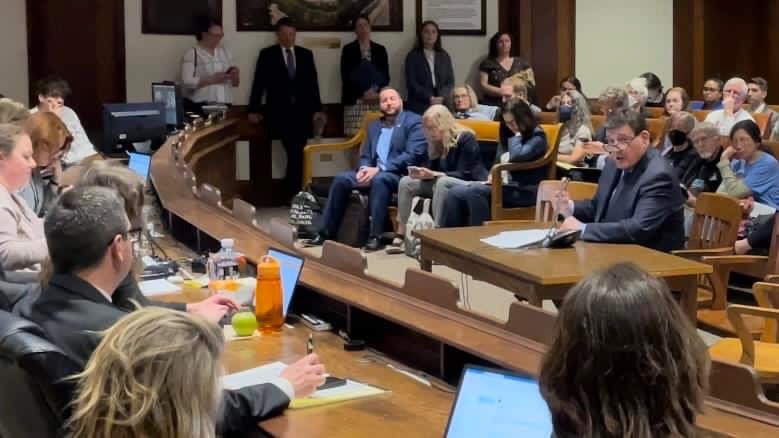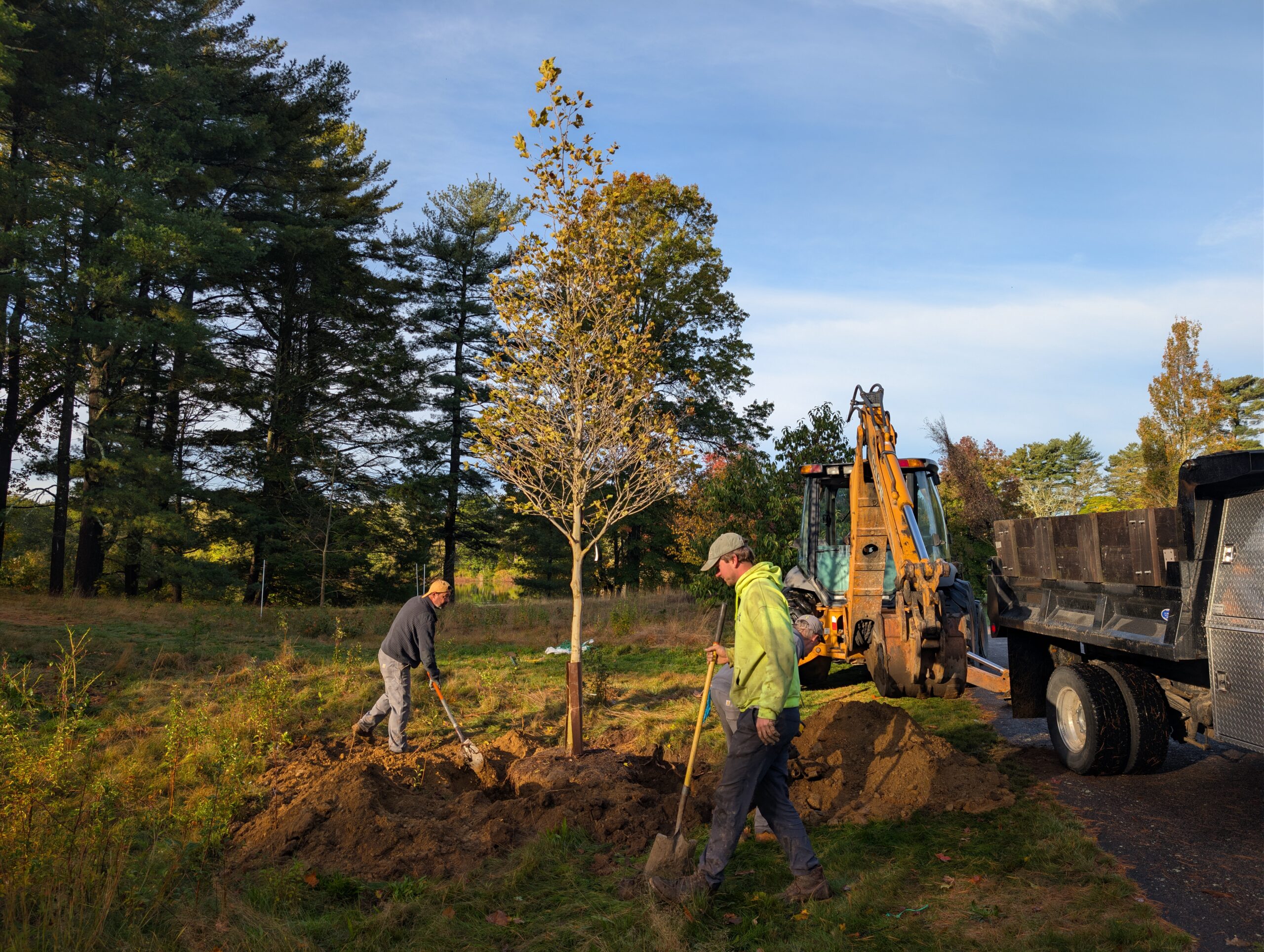Update: May 25, 2023
Legislation filed this 2023-2024 session proposes to create a statewide “flood risk protection” commission to help create a new program focused on property buyouts.
Climate change impacts such as sea level rise, and more frequent and intense storms—projected to accelerate in coming years—are already affecting Massachusetts communities today, including through erosion, flooding of roads, and damage to homes. Flood insurance and adaptation solutions can be cost-prohibitive for homeowners, residents, and business owners.
But waiting to build-back after a storm comes with even higher costs.
State legislation filed this session by Senator Marc Pacheco and Representative Sarah Peake proposes to create a commission to assess the advantages and disadvantages of voluntary acquisition of flood risk properties and structures across the Commonwealth, examine the feasibility of such a program, and identify its components. The state climate chief, secretary of energy and environmental affairs, and the director of the Massachusetts emergency management agency would jointly implement and oversee the commission’s work. The goal of the bill is to eliminate the risk of catastrophic flood damage to individuals, families, small business, neighborhoods, infrastructure and first responders, and to help property owners and renters to move out of harm’s way, while permanently conserving and restoring lands and waters to restore habitat and climate resiliency functions and provide outdoor recreational opportunities for the public.
Property buyouts are a key climate adaptation solution. They give vulnerable homeowners and tenants options in areas subject to chronic flooding, and areas anticipated to face worsening impacts from climate change. The 6th United Nations Climate Assessment Report shows that climate change puts billions of people at imminent risk of flooding from sea level rise and more frequent and intense storms.
The Trustees coastal strategy and three regional State of the Coast reports project significant impacts to both built and natural landscapes in the Commonwealth, including coastal banks, developed coastlines, beaches, armored shorelines, salt marsh, and more.
“This legislation has the potential to provide property owners and tenants viable options to safely relocate from areas hit hard by the impacts of climate change,” noted Linda Orel, Trustees Senior Director of Government Relations. “This legislation prioritizes tenants, low-income families and environmental justice populations.”
The Trustees is leading efforts to secure legislative support for this effort in close coordination with nonprofit partners at the American Council of Engineering Companies, Charles River Watershed Association, Conservation Law Foundation, Environmental League of Mass, Mass Association of Conservation Commissions, Mass Audubon, Mass Land Trust Coalition, Mass Rivers Alliance, Metropolitan Area Planning Council, The Nature Conservancy, and others.

Senator Marc Pacheco testifies on climate resilience and property buyouts before the Joint Committee on Environment and Natural Resources at the Massachusetts State House.
To learn more about this program, explore the FAQs below:
What are property buyouts?
A state property buyout program would be a key part of a larger climate strategy. Buyouts would be entirely voluntary, acquiring at-risk properties from interested owners and tenants, and helping them relocate to safe areas, covering both inland and coastal properties. Once property is acquired, houses and structures would be removed, and the land would be permanently conserved and restored to provide natural floodplain and coastal wetland ecological services.
How would relocation help, long-term?
Conservation and restoration of previously occupied land could help create new climate-resilient landscapes that can serve as a natural buffer against flooding to protect neighboring communities. Buyout projects would be a one-time investment and would be more affordable when compared to the long-term costs of rebuilding, flood insurance, and municipal expenses associated with emergency response, damaged infrastructure, and future climate impacts. They also keep first responders and residents safe from the impacts of storms and floods.
Why does Massachusetts need to focus on property buyouts?
Climate change is causing more frequent and intense storms, leading to severe and repetitive flooding caused by rainfall, storm surge, tidal flooding, and sea level rise. Over 320,000 properties across Massachusetts are at risk of flooding, according to a 2020 report from the First Street Foundation (65% more than existing federal flood maps indicate.
Buyouts may be the only solution available for low-income homeowners and Environmental Justice (EJ) populations who face skyrocketing flood insurance premiums in the face of increasing flood risk and who cannot afford to rebuild when extreme weather hits.
Why would the state need a pre-disaster buyout program, when FEMA’s already offers a Building Resilient Infrastructure and Communities (BRIC) program?
FEMA’s BRIC program offers pre-disaster hazard mitigation funds. However, FEMA funds are limited, and property owners can wait in limbo for up to a decade before FEMA decides whether to acquire a property. FEMA also does not focus on restoring to its natural floodplain functions, nor does it prioritize low-income property owners or EJ populations. Massachusetts needs a reliable statewide buyout program to support needs that FEMA does not address.
How would property buyouts work?
A well-developed, voluntary program would require state agencies to use current data to prioritize the allocation of public funds to the communities at the highest risk of repetitive or substantial flooding and that need it most, including low-income residents and EJ populations. An interested property owner would offer their land to sell. If the land is eligible, then state agencies would oversee a buyout in cooperation with cities, towns, and other eligible stakeholders to acquire that property, relocate owners and tenants, remove homes and structures, and permanently conserve and restore the land to its natural state. A successful program would conserve and restore natural areas to provide co-benefits to the community, including climate resiliency, drinking water supply protection, habitat conservation, and recreational opportunities.
How would property buyouts be funded?
The legislature enacted environmental bond bills in 2014 and 2018 that together authorize $50 million for a coastal property buyout program. However, the legislature would need to authorize additional bond funds and/or create another funding mechanism to also support inland buyout projects. Community Preservation Act funds can also be used locally for property buyouts. State funds are critical to leverage project investments from local, state, federal, and private sources.
Do similar programs exist elsewhere?
Yes, to view an example of a similar state buyout program, please visit New Jersey Blue Acres.
How can I help?
Help us move this work forward! Call your local representatives and voice support for of S.557 and H.876, An Act to create a commission to determine the feasibility of voluntary acquisition of flood risk properties and structures. Click here to find contact information for your state legislators.
###
Questions? Email The Trustees Senior Director of Government Relations, Linda Orel at lorel@thetrustees.org.



